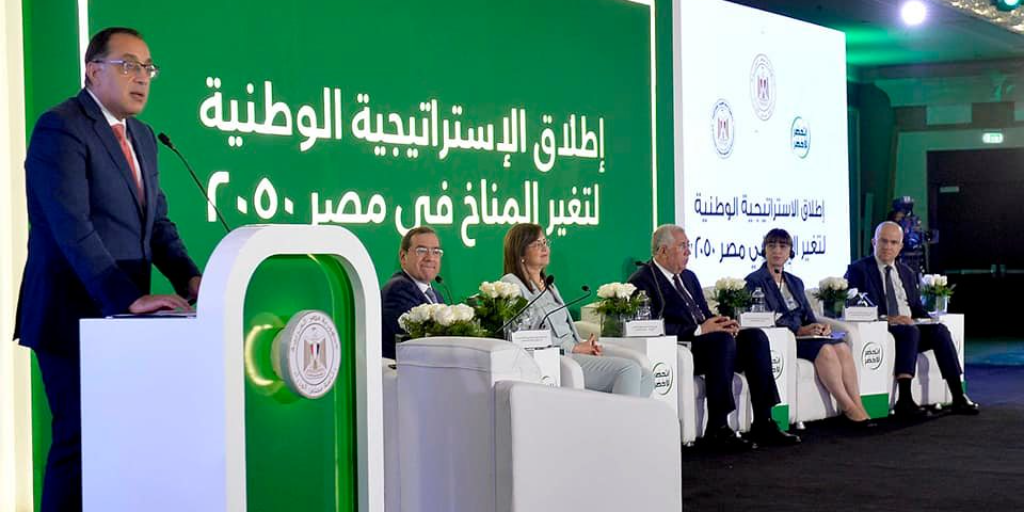Photo via Facebook
In November 2021, Egypt’s Sharm El Sheikh was selected to host the 27th UN Climate Change Conference 2022 (COP27). Since then, Egypt has been in preparation mode for the world’s biggest annual climate change conference, from a four-axis plan to prepare the Red Sea city, to investment in sustainable nationwide mega projects.
In its efforts to ensure the success of the conference and to mitigate the repercussions of climate change on Egypt and the rest of the world, Egyptian Prime Minister Mostafa Madbouly launched the National Strategy for Climate Change 2050, on Thursday, May 19. The strategy was launched in the presence of the Egyptian Minister of Environment, Yasmine Fouad, and several ambassadors and officials.
During the launch, Fouad stressed that the strategy aims to better citizens’ quality of life, improve sustainable economic growth, and preserve natural resources.
What is the National Strategy for Climate Change 2050?
The National Strategy for Climate Change 2050 is a five-pillar strategy that comes in line with Egypt Vision 2030, which aims to “achieve sustainable development for a better life to all Egyptians”. More so, Egypt Vision 2030 is aligned with the 2030 Agenda for Sustainable Development and the Sustainable Development Goals (SDGs).
The first pillar of the strategy aims to achieve sustainable economic growth, build reliance on renewable energy sources, adopt sustainable practices in production and consumption, in addition to reducing greenhouse gas and fossil fuel emissions.
The biggest contributor to emissions in Egypt is the energy sector, which is also a major contributor globally. However, last year, Egypt launched the ‘Vehicle Replacement Presidential Initiative’ to replace vehicles that were manufactured over 20 years ago with new, natural gas-powered ones.
Meanwhile, the second pillar focuses on preserving the country’s ecosystem, and protecting its citizens from the negative impact of climate change on their health. Egypt’s natural landscapes have not only been inscribed in the World Heritage List, they also benefit as top attraction sites for tourists. In particular, Egypt’s beaches and deserts retain rich biodiversity, which is at risk due to climate change and pollution.

Photo via Facebook
Fouad noted that the strategy’s third pillar targets launching policies to improve the general climate in Egypt, as a continuation to the country’s reforms in climate change policies between 2019 and 2021.
In 2020, Egypt became the first country in the Middle East and North Africa to issue a sovereign green bond. Green bonds are financial loans used to fund environmental projects.
The fourth pillar aims to enhance infrastructure for financing climate change projects, while the last pillar focuses on spreading knowledge and raising awareness on the impact of climate change across the entire population.
Fouad highlighted that the strategy requires all segments of society to come together and cooperate with the government, including civil society and NGOs.
“Egypt will spare no effort during its presidency of COP27 to tirelessly seek to move from the stage of commitments and pledges declared by states to the stage of actual implementation of quick and tangible measures,” concluded Madbouly.







Comments (3)
[…] of Environment, Yasmine Fouad, signed a joint cooperation agreement with the EU ahead of the UN Climate Change Conference (COP 27) in Sharm El-Sheikh in November 2022 […]
[…] […]